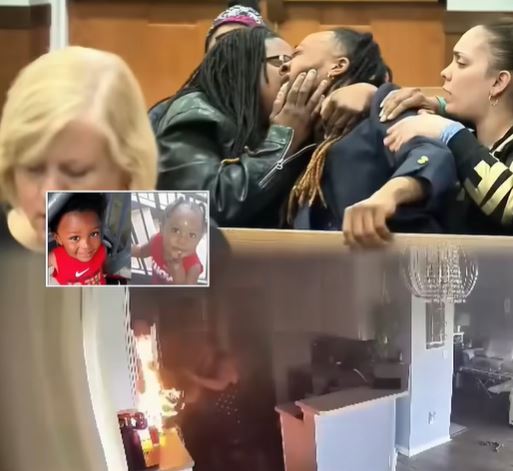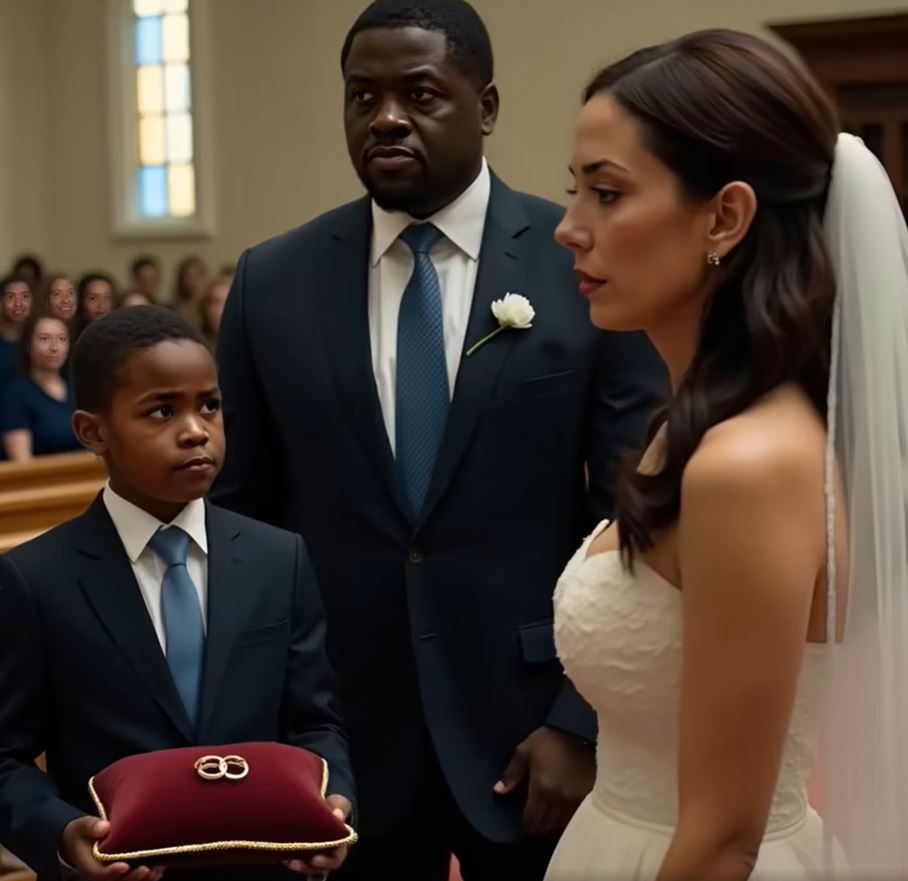A three-year-old girl secretly gave an S.O.S. signal at a diner. A soldier saw it and pretended to offer her candy. Her “father’s” reaction was a swift, brutal slap.

A fly was trapped against the glass, its faint, frantic buzzing the only sound in a world that had fallen silent. The late afternoon sun slanted through the dusty window of the Kansas diner, illuminating streaks from a half-hearted cleaning. Outside, the highway stretched into the horizon, a quiet, still ribbon disturbed only by the occasional passing semi.
Ethan Walker set his duffel bag on a worn leather bench and sat upright, his body still unaccustomed to relaxing after eighteen years of rigid discipline. The uniform was gone, but the straight spine and the watchful, scanning eyes of a Marine remained. At the counter, Margaret Chen, the diner’s owner, carefully wiped down the coffee machine, her movements slow and methodical in the quiet room.
Ethan wasn’t hungry, but he ordered a ham sandwich and black coffee. The words “thank you” were a near-silent whisper, as if he feared the past might hear him and return. Kansas had been home once, before a slick winter morning on Highway 54 had left him an orphan at seventeen. He’d enlisted a week after the funeral, trading one empty house for another kind of emptiness. People say time heals, but soldiers know better. You don’t heal; you just learn to carry the wound without bleeding on anyone.
Then he saw her. In a corner booth, behind a brittle potted cactus, sat a little girl. She was three, maybe four, with dark, curly hair and a pale blue dress. She sat unnaturally still, her hands resting on her thighs, her gaze drifting across the room, brushing over each face just long enough to see, but not long enough to be seen. She was looking for something—or someone.
Across from her sat a man in a gray suit, his blond hair neatly trimmed, his eyes a pale, almost transparent blue. He was absorbed in a thick, title-less book. He hadn’t touched the child, hadn’t spoken a word. He just read. And that was the first thing that snagged in Ethan’s gut. No one takes a three-year-old to a diner and buries their nose in a book, treating her like carry-on luggage.
Ethan turned his coffee cup, his finger tracing the warm rim. He didn’t look at her again, not directly. He didn’t have to. He knew, with a certainty that settled deep in his bones, that she would look his way again. And she did. This time, her eyes lingered for a fraction of a second longer, and in them, he saw a slight, almost imperceptible tremble.
Margaret brought his sandwich. “Need any sugar, hon?” she asked, but her eyes squinted just a little as they flicked towards the corner booth. She sensed it, too. The wrongness that had settled in the air.
Ethan shook his head. A little boy, Leo, Margaret’s grandson, ran past, his toy car making a loud “VROOOM.” The little girl flinched, a tiny, silent movement. The man in the suit glanced up, just once, a look so sharp and cold it stopped Leo in his tracks.
Ethan looked out at the parking lot. A dark gray SUV was parked near the road, engine running. There was a superhero sticker on the rear window, placed not with a child’s randomness, but with the specific intent of obscuring the view inside.
He walked his empty cup to the counter. “That little girl in the corner,” he said, his voice low. “You notice anything?”
Margaret’s eyes, sharpened by years of raising three kids, flickered towards the booth. “Been sitting there a while,” she whispered back. “Hasn’t said a word. I think she was crying earlier, real quiet.”
Ethan nodded and returned to his seat. This time, he sat facing her more directly. The girl looked at him again. Her right hand lifted slowly. She curled it into a fist, then opened it. Once. Twice. Three times. It was not a wave. It was a signal. The universal one. S-O-S. He knew it. And in that instant, he believed her.
The last rays of sunlight bled from the sky, and Margaret flicked on the diner’s warm, yellow lights. The man in the suit—Cole, Ethan had heard the girl whisper his name once—had put away his book and was now scrolling through his phone. He still hadn’t spoken to the child, who sat rigid and silent, her food untouched. She wasn’t a child sitting with her father; she was a hostage.
Ethan stood up and walked over to their table, his movements calm and deliberate. “Excuse me,” he said. “Hope I’m not interrupting.”
Cole looked up, a smile forming on his lips that didn’t reach his cold, flat eyes. “What do you want?”
“Just wondering if the little one is your niece,” Ethan said, his tone conversational. “She reminds me of my cousin.”
A brief, almost imperceptible hesitation. “She’s my daughter. Is there a problem?”
“No, no problem at all,” Ethan said, feigning a moment of thought. He reached into his pocket and pulled out a small, foil-wrapped candy. “My niece used to love these. Maybe the little one would like one?”
He placed the candy on the table, a bright red beacon in the tense space between them. The girl’s eyes flicked from the candy, to Cole, then back to Ethan. Slowly, her tiny, trembling fingers reached out.
The slap was not loud, but it was brutally swift. Cole’s hand shot out, striking the girl’s wrist with just enough force to make her arm recoil as if it had been burned.
“She’s allergic,” Cole snapped, his voice sharp with command. “Don’t give her anything without asking.”
The girl didn’t cry. She just pulled her hand back, her small shoulders quivering, her eyes dropping to the floor. It wasn’t just a look of fear; it was the look of someone whose last flicker of hope had just been extinguished.
“I’m sorry,” Ethan said, his voice low. “I didn’t know.”
Cole gave a curt nod, the conversation slammed shut. Ethan walked back to his table, the air in the diner suddenly thick and heavy. He sat down and spoke just loud enough for Margaret to hear. “Call the police. Now.”
Behind the counter, Margaret led Ethan into the small, soundproof backroom. She dialed a number from memory. “Rachel, it’s Margaret,” she said, her voice tight. “Rest Stop Number 8. I’ve got an emergency.” She listened for a moment. “Not yet. But there’s a little girl… someone here confirms she’s signaling for help.”
She handed the phone to Ethan. “My name is Ethan Walker,” he said, his voice steady. “Former Marine. I’m trained to identify nonverbal SOS signals. The girl has signaled twice. The man is in complete control.”
The voice on the other end, Sheriff Rachel Monroe, was focused, no-nonsense. “Give me a description.”
“Gray SUV, Kansas plates. Man is white, blond hair, gray suit. Girl is about three, light brown skin, pale blue dress.”
“Units are on their way,” Rachel said. “Don’t let them leave.”
The click of the door latch was the signal. Cole shot to his feet, grabbing the little girl’s wrist. “Let’s go,” he hissed.
The girl, Lily, gave a slight, desperate jerk, her eyes finding Ethan across the room. Ethan stood, moving without haste, and planted himself directly in their path to the door.
“Where do you think you’re taking her?” Ethan’s voice was quiet, but it filled the entire diner.
Cole’s lips curled. “I told you, we’re heading home. You’re not planning on getting in my way, are you?”
“She doesn’t want to go with you,” Ethan said flatly. “I’ve called the police. They’ll be here any minute.”
Cole let out a short, scornful laugh. “Over a piece of candy? A glance? Who do you think you are?”
“I’m the person who saw her signal for help,” Ethan replied. “And I’m the person who’s not letting you leave with her.”
Without warning, Cole lunged, shoving a hand toward Ethan’s chest. But Ethan’s combat reflexes were honed and sharp. He didn’t block, didn’t retaliate. He simply shifted his weight, an immovable object. Cole lost his patience. He yanked Lily towards the door, but Ethan’s hand shot out, catching his wrist in a grip of tempered steel.
“That’s enough,” Ethan said, his voice dropping to a low growl.
The two men stood chest to chest, a coiled spring of tension. Then, in the distance, a siren wailed. Headlights—red, blue, red—swept across the diner floor. A police SUV rolled to a stop outside.
Cole’s face crumpled in defeat. Sheriff Monroe entered, calm and commanding. “Stop right there,” she said.
Cole let go of Lily’s hand. The little girl didn’t run. She just stood there, her eyes fixed on Ethan. Then, she took one small step, then another, until she was standing directly in front of him. She looked up, her expression a mixture of awe and disbelief.
“You’re my hero,” she whispered, her voice trembling but clear.
And then she threw her arms around his waist, clinging to him with the desperation of someone who had been drowning and had just found solid ground. Ethan froze. It wasn’t a polite hug; it was a lifeline. Slowly, his own arms, long unused to such gestures, came up and rested gently on her small, shaking back.
From the doorway, Margaret watched, a single, slow nod of affirmation. Sheriff Monroe walked up beside them. “You didn’t just save a little girl tonight, Ethan,” she said softly. “You reminded the rest of us why we do this job.”
The night was a blur of official procedure and quiet, fragile moments. At the station, Ethan learned the full, horrifying story. The man, Cole, was part of a child trafficking ring. The little girl, Lily, had been taken from her mother, Grace, nearly a year ago. Grace had been in a relationship with Cole, one that had become controlling and violent. When she tried to leave, he had taken her daughter.
The reunion between mother and child was not the joyful explosion Ethan had imagined. When Grace rushed into the room, her face pale and her eyes red-rimmed, Lily didn’t run to her. She just watched, her expression distant, as if looking at a stranger. The trauma had built a wall between them, a wall that would take more than a single night of rescue to tear down.
A week later, the trial was a swift, brutal affair. Grace, her voice shaking but resolute, testified about the life of fear she had endured. Ethan took the stand and spoke of the silent, desperate signal. A video from a gas station, a crayon drawing from Lily, and a live-stream from a TikToker who had been in the diner, all wove a damning narrative. Cole was found guilty, his cold composure finally cracking as he was led away in handcuffs.
In the days that followed, Ethan prepared to leave. He had done what was needed. It was time to move on, to return to his life of quiet, solitary motion. He was sitting on a park bench, his duffel bag at his feet, when a small figure settled beside him. It was Lily. She didn’t speak, just held out her hand. In her palm was a single, red piece of candy.
Ethan took it, holding it gently in his own calloused palm. “Can you fly?” Lily asked, her voice as soft as the wind.
Ethan shook his head. “No. But that day, I was fast enough to catch you.”
A small, hesitant smile touched her lips for the first time. In the distance, Grace and her new fiancé, Paul, a kind, steady man Ethan had met at the station, stood watching. They didn’t interrupt. They understood this moment belonged to the soldier and the little girl he had saved.
Later, Rachel Monroe found him at the diner. “We’re opening a shelter,” she said, no preamble. “For kids like Lily. We named it ‘Red Flame,’ after the candy. We want you to stay. As a security advisor. A gatekeeper. Some of these kids, they can only sleep if they know someone is watching the door.”
Ethan looked out at the long, empty highway, the road that had always been his escape. He had never considered staying anywhere. But then he thought of Lily’s hug, of the weight of the candy in his pocket, of the quiet purpose he felt for the first time in years.
When he visited the newly opened shelter, Lily ran to him, grabbing his hand and pulling him inside. On the wall was a gallery of children’s drawings. In the center was one that stood out. It showed a tall man in a green uniform with his arm around a small, brown-haired girl. She was holding a red candy, and a bright, crayoned sun shone down on them.
He leaned down to Lily. “Is it okay if I stay?” he asked softly. “Just for a little while?”
She nodded, her grip on his hand tightening. “As long as you need,” she said. “Just don’t disappear.”
And for the first time in a very long time, Ethan Walker felt no desire to run. He had spent his life fighting in faraway lands, but he finally understood. Sometimes, the most important battles are fought in the quietest of places, and victory isn’t a conquered territory, but a small hand, held firmly in your own.


